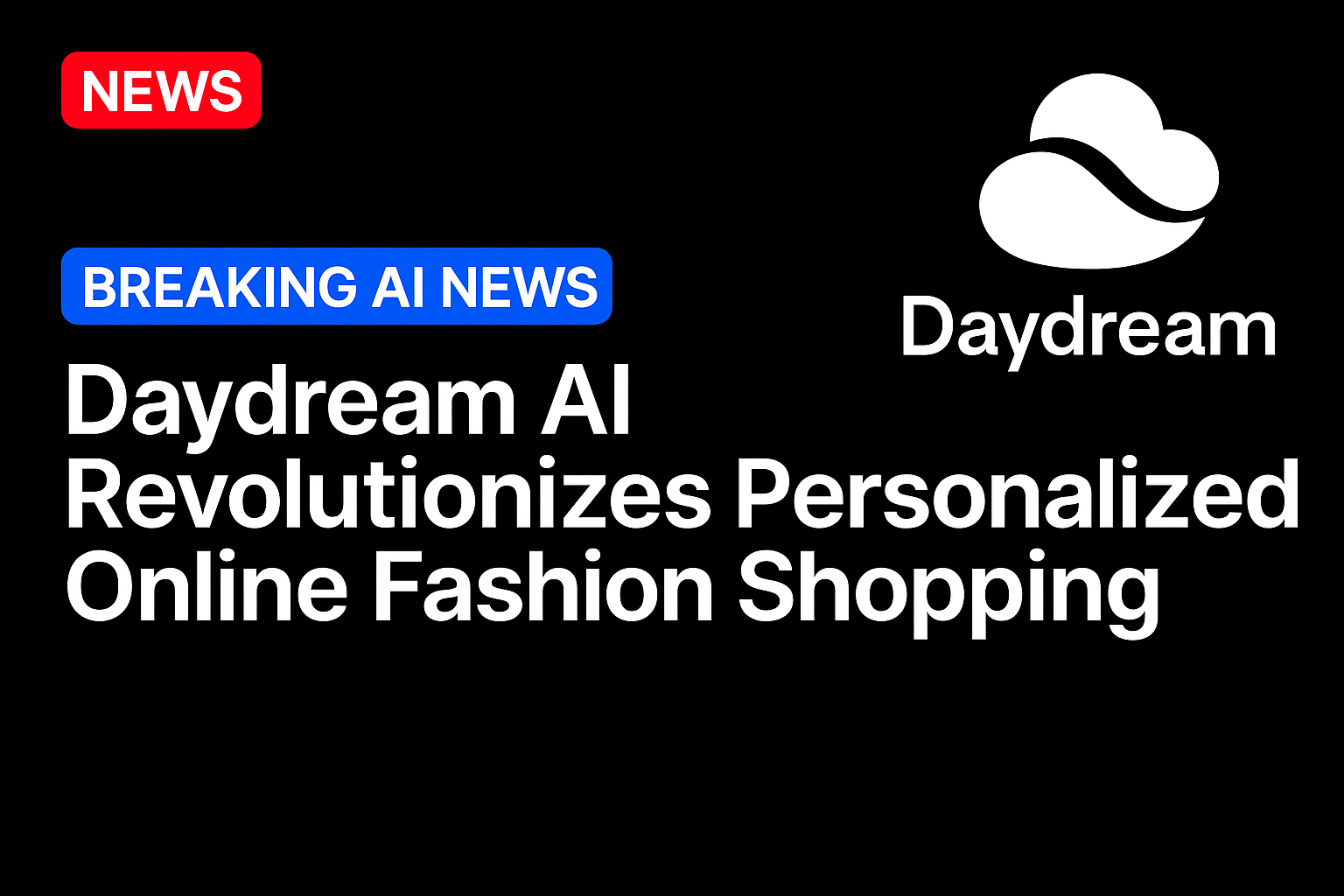Anyone who has tried to find the perfect bridesmaid dress online knows that online shopping can be a real challenge. Amid an endless selection, it’s hard to find the right style, color, size, and price that fit perfectly.
The startup Daydream aims to change this by allowing users to search for products online the way they would describe them to their friends.
For example, a user might enter a query like “revenge dress for a party in Sicily in July” or “summer bag for work and cocktails afterward.”
Daydream, with teams in New York and San Francisco, is one of the newest tech companies using artificial intelligence to simplify and personalize online shopping. The demand for such solutions already exists – a survey of 5,000 American consumers conducted by Adobe Analytics showed that 39% of respondents used generative AI for shopping last year, and 53% plan to do so this year.
Daydream competes with major tech companies that have already implemented AI tools for online shopping. Meta uses AI to simplify product listings for sellers and to show users relevant ads. OpenAI launched an agent that can shop online on behalf of users, and Amazon is testing a similar feature. Google offers various tools, including automatic price tracking, image-based search, and virtual clothing try-ons.
However, Daydream’s CEO Julie Bornstein noted that their company has a deeper understanding of the fashion and retail industry than the big players. She helped build the Nordstrom website, worked in leadership at Sephora and Stitch Fix, and in 2018 co-founded the first AI shopping startup The Yes, which was sold to Pinterest in 2022.
“They don’t have the people, the thinking, and the passion to make the fashion category work for AI recommendations. Since I’ve worked in this field my entire career, I know that having a catalog with everything and the ability to show the right things to the right person is what makes shopping easier.”– Julie Bornstein
Daydream has already raised $50 million in its first funding round from investors including Google Ventures and model Karlie Kloss, founder of Kode With Klossy.
This free platform works like a digital personal stylist. Users can enter queries in natural language – no complicated search operators needed thanks to AI text recognition technology – or upload photos for inspiration. Daydream offers recommendations from over 8,000 brands, ranging from Uniqlo to Gucci. Users can continue the conversation like with a chatbot, refining their search by asking for more casual or cheaper options, for example. Over time, the platform adapts recommendations based on search history, clicks, and saves.
When a user is ready to buy, they are redirected to the brand’s website to complete the purchase, and Daydream receives 20% of the sale. Unlike many major e-commerce players, Bornstein rejects advertising-based rankings – she wants products to appear in recommendations based on how well they fit the shopper, not because brands pay for placement.
“Once Amazon started doing paid sponsorships, I thought, ‘How do you find a really good product?’ We want it to be that we get paid when we show the shopper the right thing.”– Julie Bornstein
During a recent CNN test, the search “white fitted button-down shirt for office without pockets” led to a $145 long-sleeve cotton shirt from Theory that matched the query. However, recommendations aren’t always perfect – a search for “mother of the bride dress for a summer wedding in California” among more formal options included several tight slip dresses better suited for a bachelorette party.
Bornstein noted that the company continues to improve its AI models and gather user feedback.
“We want to have data on what people do to focus and understand where we’re doing well and where we’re not.”– Julie Bornstein
Part of this work involves training the AI model to understand what it means when users search, for example, for a dress for a trip to Greece in August (it will be hot there) or for a black-tie wedding (a formal dress is needed).
Daydream launched a public web version last month, although it is still in beta testing, and plans to release a mobile app this fall.
In the future, Bornstein expects people to use AI not only for shopping but also for other fashion needs, such as pairing new items with those already in their wardrobe.
“That was one of my very first ideas, but I didn’t know the term (generative AI) and didn’t know that a large language model would be the key.”– Julie Bornstein
Source: https://mezha.net/




